A pump is the engine room of your swimming pool. It ensures that your water is filtered, chlorinated, and heated. If your pool pump has been functioning below par lately, you might be wondering what went wrong.
You can hear the pool pump running, but it makes a humming noise. The water is greenish in hue and not hot enough. A humming pool pump is perhaps one of the most commonly recurring issues that pool owners face. It could come down to various reasons. Today, we’re going to look at some of them.
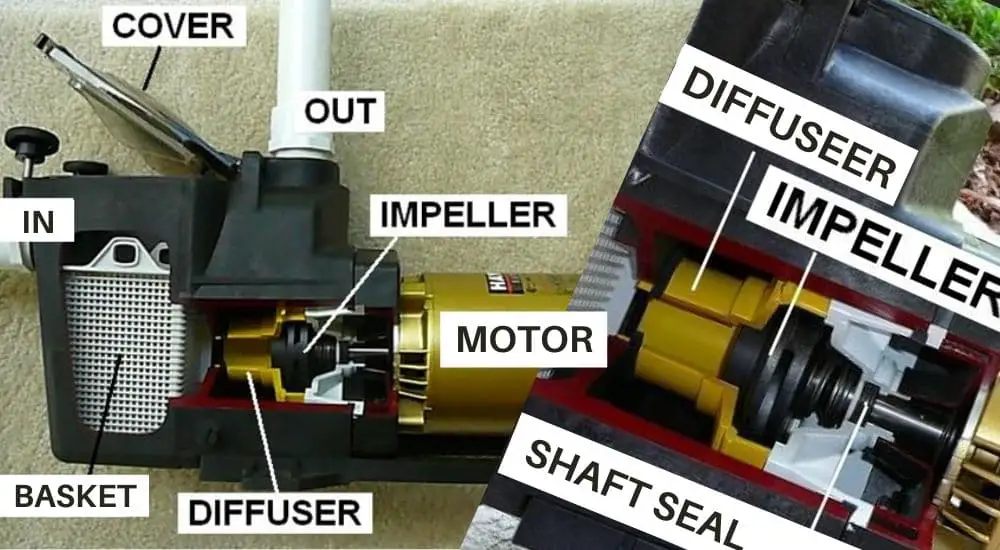
You might be wondering whether you should call a professional or get rid of the pool pump altogether. Hold it right there! Maintaining your pool pump is relatively easy to do by yourself – and no, you cannot get rid of the pool pump!
A pool pump is a must-have for any pool owner. Pumps make sure the water circulation remains intact, the water comes out clean, and your guests don’t go skinny dipping in a river of green algae and bacteria. In addition, all those precious chemicals you bought are at work because of the pump; therefore, it is out of the question to remove it entirely.
Safety Precautions & the Basics
Remember to reset the circuit breaker before attempting any DIY solution.
Safety precautions to take before going forward with any DIY solution:
- Inspect and reset the circuit breaker.
- Turn on the display monitor.
- Check the power outlets and plug point to make sure they’re switched off.
Issues With the Shaft
The pool pump shaft is a crucial area that may be the root cause of all the humming noises your equipment has been having lately. The shaft could have one of two issues: a bent shaft or an improperly installed shaft that moved from the original position.
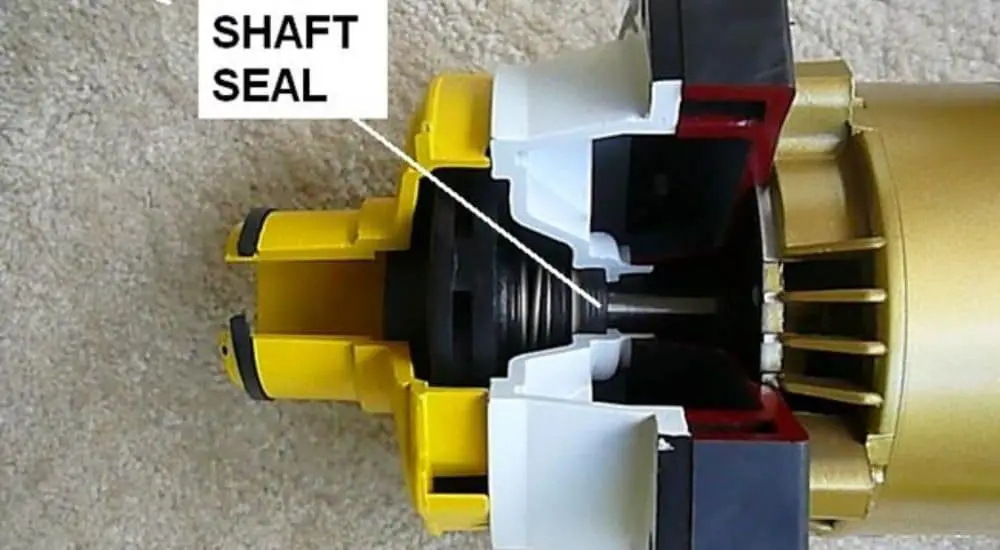
A Bent Shaft
You can imagine how a bent pipe in any piece of electrical equipment could be cause for concern. For instance, a bent gas pipe may be very dangerous and require immediate assistance from a professional. Likewise, a bent shaft in your pool pump will cause unnecessary vibrations and noises and disrupt the functionality of the equipment.
To fix this issue, you’ll need dial indicators. A dial indicator can detect any bend or dislocation of structure in the shaft. If you do find a bent shaft, the best choice is to replace it with a new one. Then, you’re good to go.
Dislocated or Improperly Installed Shaft
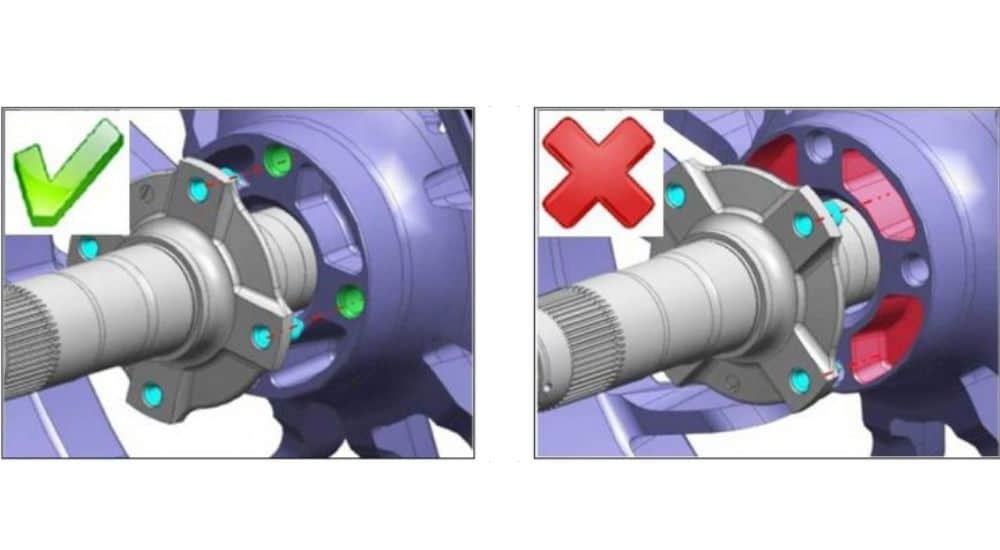
This is another common reason for a humming pool pump. Sometimes, the shaft is improperly installed or gets dislocated, which affects the performance. Any oil leakage, frequent coupling malfunction, or damaged and broken shaft is a clear indicator that you’re facing this problem. In this scenario, you’re better off calling a professional.
A dislocated pump shaft is a troublesome problem that nobody wants to face. A professional will use their expertise to inspect the positioning of the shaft and thereby confirm the cause of the humming noises. You want a professional to do this for you because it takes special care. The wires and sensors surrounding the shaft are sensitive, and you may unintentionally cause further damage to the equipment by trying to do it by yourself.
Maybe the Pathway is Blocked
Have you ever seen your dog choke on something? Did you notice how he sounded? Like a car ignition that won’t start, he kept coughing, and you got worried. Now that this image is in your head, it may be easier for you to imagine your pool pump blocked with deposits built up over time.
As debris gathers inside the pool pump, it starts making a humming noise. If your pool is not protected with an enclosure, then airborne debris, leaves, etc. get sucked into the pump and clog the pathway.
Clogged Pool Pump
Skimmers are commonplace for debris, so always inspect them to ensure they’re clear of dirt. Then reinstall them.
Clogged Impeller
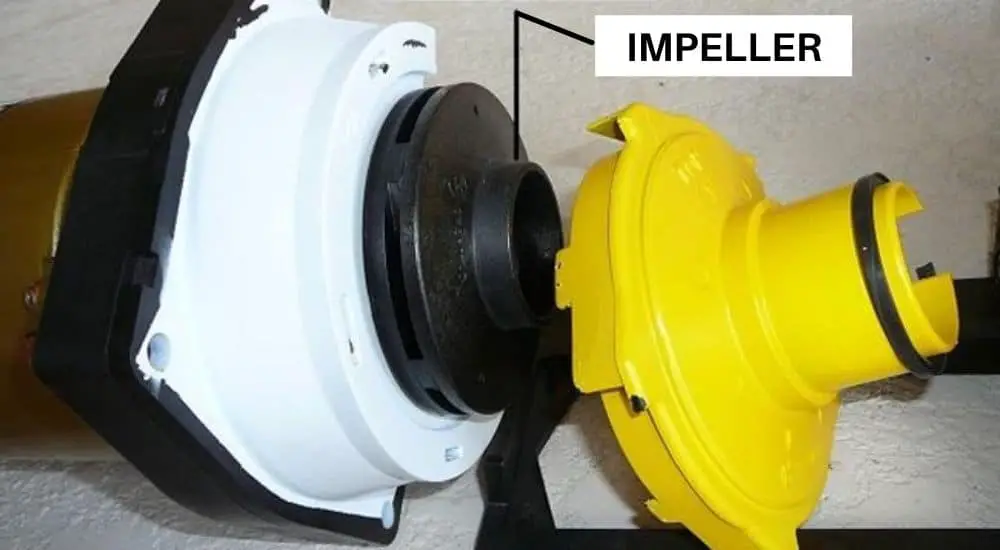
Is your pool pump making a humming noise but not working? This sounds like yet another blockage issue. Generally, when a deposit of residue builds up around the impeller, the pool pump will start humming. You may think it’s functioning only to find out that it’s not. When the impeller is blocked, the pool pump is automatically disabled.
Let’s look at the steps you can take to clean a clogged impeller:
- First, turn off your pool pump.
- Use a screwdriver to open the middle portion of the pool pump to disassemble the motor parts.
- You’ll find the impeller beneath the rubber gasket or seal.
- Use a brush to clean the debris you see in the impeller, so it spins without any obstruction.
- Reassemble the body.
Faulty Pump Capacitor
Capacitors are the cylindrical objects inside your pool pump that ensure the motor has the necessary electric energy to run. There are two capacitors: a start capacitor and a run capacitor. These two little magicians are fundamental to the pump’s continuous operation.
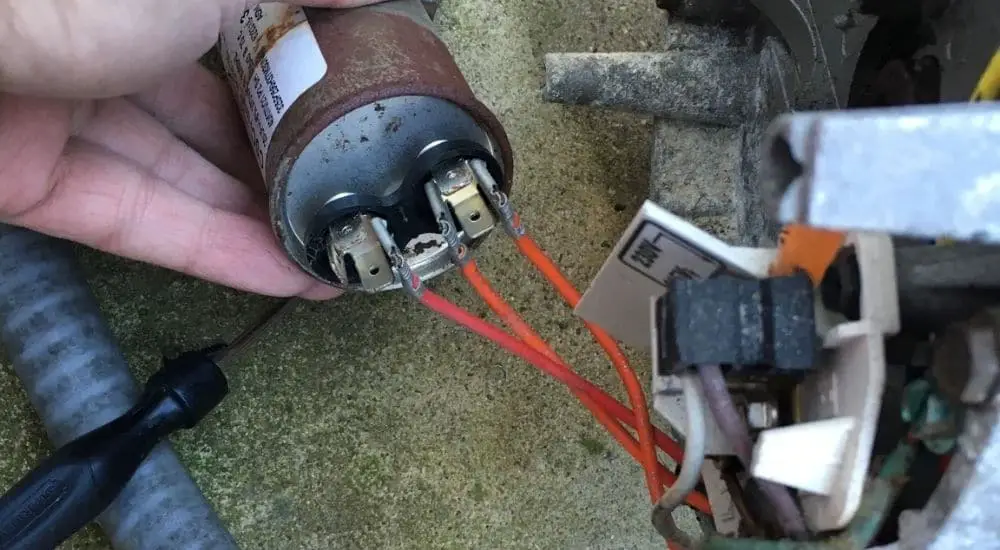
The start capacitor is responsible for – you guessed it – starting the motor with a jolt. The latter keeps it running. One of them going faulty could disable the motor and, hence, the pump. A faulty capacitor could lead to various symptoms, but we’re going to look at the one we’re most concerned about: a humming pool pump.
Perhaps the clearest sign of a faulty or damaged capacitor is when your pool pump makes excessive noise but doesn’t start. To ensure that’s the case, try manually running the pump by spinning the motor blades; if it starts, the capacitor isn’t doing its job.
However, a capacitor is a sensitive business and you’re better off calling an electrician to inspect it. There are some issues you can solve yourself, while others need expert attention. In the latter case, doing the wrong thing will only cost you more money.
Cavitation: Not the Teeth Kind
Cavitation sounds like grinding out metal, rocks, or solid things instead of filtering clean water. This occurs because the impeller starts sucking in the air with the water. There are various reasons why that happens.
Generally, when the pressure of the vaporized liquid inside the pool pump rises above the pressure of the impeller liquid, pockets of air form, resulting in a rattling noise inside the equipment. The more air that gets into the system, the worse the performance becomes.
The worst thing that can happen to the pool pump is when it starts to dry out. The inadequate amount of water boils to steam, which heats up the impeller. Soon, you have a humming pool pump. Therefore, you must ensure that the water levels are just right. Open the pool pump cover and check the rubber seal that is supposed to hold things together. A simple impeller replacement will do if you’re lucky, but waiting too long may require more expensive solutions.
FAQs
Why is my pool pump’s flow so slow?
A low flow rate in a running pump may indicate that you have dirty filters, clogged impellers, a pump basket filled with debris, or an air leak.
What could be a solution to a pool pump motor not functioning?
Always inspect the bottom vents; usually, the fan is clogged with debris like leaves and dirt. Thus, cleaning them out will get the fan running. Other times, it could be a simple case of low voltage issues. Check the power board and ensure the wirings are intact.
Why is my pool pump leaking water?
Usually, when the pool pump leaks water, it is because of unnecessary pressure on the body. Disassemble the cover of the equipment and check that the impeller’s seals, O-rings, etc. are intact.
How can I ensure that the pump receives adequate flow?
First, install the pump away from the shut-off head, as that may cause pump flow pulsation. This is when the discharge valve is restricted and vibrations occur. Make a habit of inspecting the valve for cracked pipes, improper installation, worn-out seals, etc. so there’s adequate flow.
How long should a pool pump run regularly to get the best out of it?
It is recommended that you let the pool pump run for at least six hours and ideally eight hours every day to ensure the water circulation is adequate and the pool is clean.
When should I call a pool service technician?
Whenever you’re attempting to disassemble any pool pump equipment, it’s best to call a pool service technician to ensure a professional job. Moreover, any mechanical damage to the equipment warrants a call to a professional.
When should I replace my pump?
Pool pumps last 8 to 15 years on average. Any time in between is the ideal time for a full replacement. However, if you notice your pool pump blowing bubbles and spurting out water, that is a sign of an air leak and you may have to replace it altogether.
Conclusion
Now that you know some of the common reasons for a humming pool pump and their quick fixes, you are well-equipped to deal with them. A pool pump is a necessity for all of us who enjoy a swim now and then. The key to maintaining their health is routine maintenance that you can do at home. However, for troubles beyond common fixes, always remember to ring up a specialist.